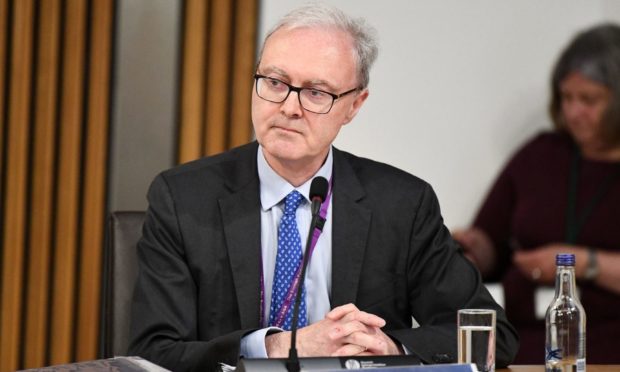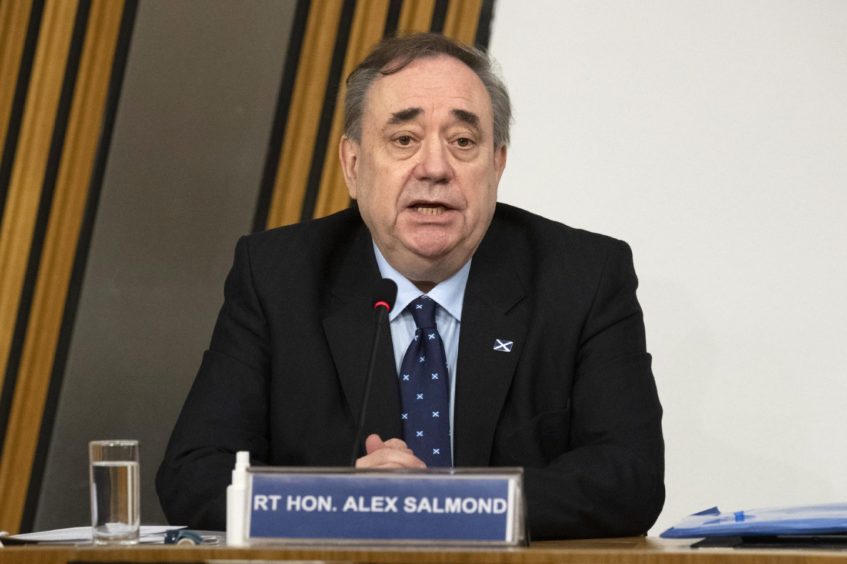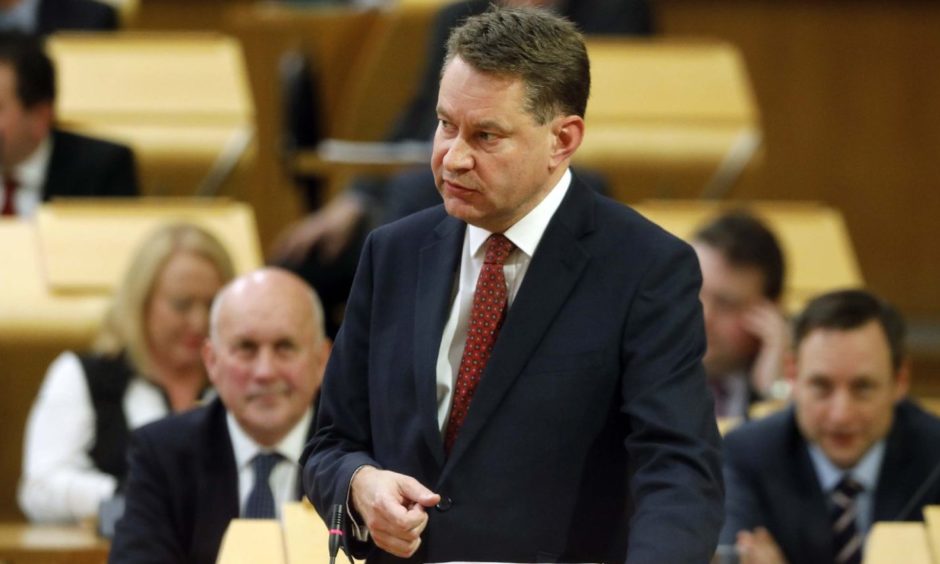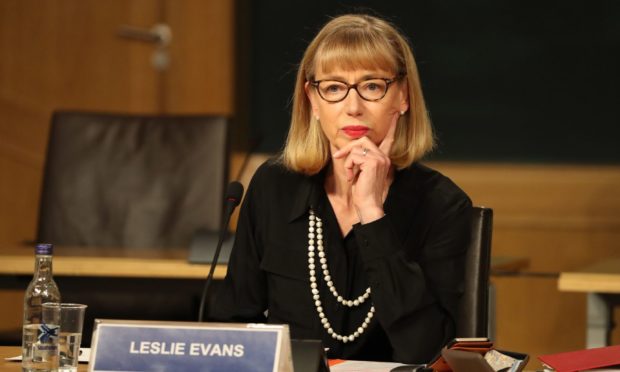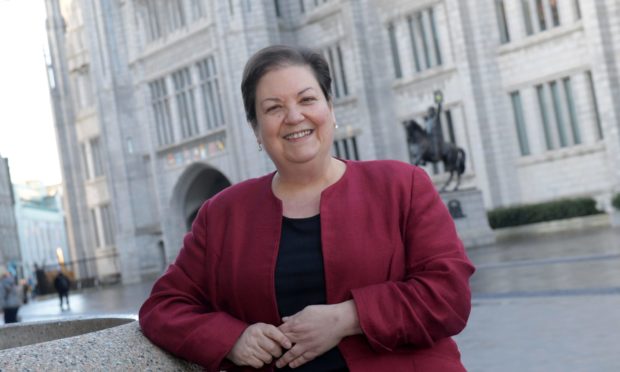The under-pressure head of the Crown Office has defended the way it has handled Alex Salmond’s inquiry evidence as a “vindication of democracy”.
Lord Advocate James Wolffe took aim at “baseless” allegations that the Crown Office had intervened in the Holyrood probe to protect the Scottish Government, saying it was “wholly without foundation” to suggest there had been any “improper” conduct.
He also argued that it was “wrong” to say his various roles could not be carried out with integrity, amid questions over the ability of the lord advocate to be both the head of the prosecution service and the government’s top legal officer.
On Tuesday Mr Wolffe was recalled to the committee investigating the government’s handling of allegations against Mr Salmond, just days after the former first minister had called on him to consider his position during an explosive evidence session.
A huge row erupted last week after the Scottish Parliament redacted part of Mr Salmond’s evidence a day after it had been published, following legal concerns raised by the Crown Office due to issues related to potential contempt of court.
The committee has also been forced to use special powers to try to obtain evidence from the Crown Office.
‘Restrictions serve important public purposes’
However, Mr Wolffe told the committee: “Any suggestion, from any quarter, that the Crown’s decision making has at any time been influenced by irrelevant considerations, or improper motivations, would be wholly without foundation.
“Insinuations or assertions to the contrary are baseless.
“Can I say absolutely that the Crown is not party, would not be party, to any improper conduct.”
Mr Wolffe highlighted the “frustration” expressed about the legal restrictions in the case, but said they served an “important public purpose”.
“In particular, they exist to ensure the confidentiality of sensitive information, and the sound administration of justice,” he said.
“Enforcing the law, including the law made by this parliament, is a vindication of democracy, not its denial.”
Lord advocate’s role
During his evidence on Friday, Mr Salmond had said there was an argument for separating the functions of the lord advocate, although he added that “we should not
confuse institutional failure with personnel”.
Asked about a potential conflict in his roles as government legal officer and head of the prosecution service, Mr Wolffe said: “The office which I hold has combined these various functions since devolution, and long before it.
“Other models are available, but this is the model we have and it’s the office which I hold, and I think any suggestion that it cannot be held with integrity is wrong.”
The lord advocate was criticised, however, over his refusal to confirm that it would be a criminal offence to resist a search warrant.
Mr Salmond had alleged on Friday that there had been “obstruction of justice” over claims documents were not released during a search warrant in the criminal case which specified meetings between the Scottish Government’s Permanent Secretary, Leslie Evans, and the women who initially complained against the former first minister.
Mr Wolffe said the Crown Office had been in touch with Mr Salmond’s legal advisers in order to clarify what was being suggested.
“The Crown Office is unaware of the detail of the complaint. If the Crown Office receives any correspondence in that regard, it will of course consider it carefully before determining the way forward,” he said.
Pressed by Conservative member Murdo Fraser about whether the failure to comply with a search warrant would potentially be a criminal offence, the lord advocate said: “As I say, I’m not going to discuss in the abstract what might or might not be a criminal offence.
“Failure to comply with a search warrant is clearly something that would require investigation and it would be a serious matter if it were to have taken place, but I am not going to make any comment in the abstract on what might or might not be a criminal offence.”
Later, Labour committee member Jackie Baillie said: “Perhaps no greater argument for the separation of the roles of the lord advocate can be made than the lord advocate refusing to state that failing to comply with a search warrant is tantamount to criminal conduct.”
During his evidence, Mr Wolffe also revealed that Scottish ministers had not contacted him about releasing the Scottish Government’s external legal advice in its civil case involving Mr Salmond until Monday, despite parliament having twice voted for the documents to be handed to the committee.
